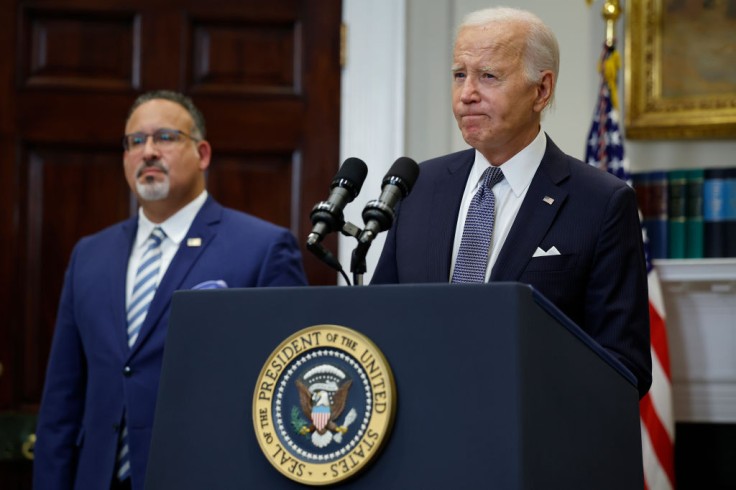
A federal appeals court has intervened and halted a rule proposed by the Biden administration that aimed to facilitate student loan debt relief.
This relief is for borrowers who claim to have been deceived by colleges and universities regarding the quality of education they would receive.
The court order comes as a response to a lawsuit filed by the Career Colleges and Schools of Texas, an association representing for-profit higher learning institutions, raising concerns over the broad nature of the rule and its potential infringement on constitutional grounds.
The ruling has sparked a debate over the powers of the Department of Education and its authority to decide on debt relief claims, with the court set to hear further arguments later this year.
Biden Administration's Rule Challenged by For-Profit Colleges
According to ABC, the Biden administration's rule, aimed at addressing the issue of college misinformation, faced a setback on Monday as the 5th U.S. Circuit Court of Appeals granted an injunction against its implementation.
The rule is intended to expand the current policy that forgives the debts of students who attended colleges accused of misleading practices, such as promising employability in their chosen field or misrepresenting potential earnings after graduation.
The Career Colleges and Schools of Texas, representing for-profit higher learning institutions, launched a lawsuit challenging the rule's broad scope, claiming that it could inadvertently include unintentional actions by the colleges.
Moreover, they contended that such sweeping authority granted to the Department of Education raises constitutional concerns as it bestows quasi-judicial powers on an executive branch agency.
Debate over Department of Education's Powers
According to U.S. News, three judges currently serving on the panel in New Orleans include Edith Jones, who was appointed to the court during the presidency of Ronald Reagan, and two individuals, Stuart Kyle Duncan and Cory Wilson, who were nominated by former President Donald Trump.
At the heart of the dispute lies the Department of Education's newfound authority to adjudicate claims for student loan debt relief.
The rule, as proposed by the Biden administration, gives the department the ability to decide whether borrowers deserve relief based on allegations of college misinformation.
This shift has generated concerns among opponents of the rule, who argue that it encroaches upon the separation of powers and places the executive branch in a quasi-judicial role.
Conversely, proponents of the rule assert that the Department of Education's involvement is necessary to protect students from predatory practices at certain institutions.
While the case is still pending in court, the ruling of the appeals court to halt the implementation has brought this contentious issue to the forefront of the national conversation.
Read Also: Texas Judge Grants Temporary Exemption for Complicated Pregnancies under Controversial Abortion Law
Future Prospects and Implications
With the appeals court scheduled to hear further arguments in November, the fate of the Biden administration's student loan relief rule hangs in the balance.
According to The Independent, the ruling in this case will not only determine the applicability of the rule in question but also set a precedent for similar challenges to the Department of Education's authority in the future.
The outcome could have significant implications for both students burdened with college debt and the institutions offering higher education.
Additionally, the ruling will likely spark debates in Congress and among policymakers as they grapple with finding a delicate balance between protecting students from deceptive practices and safeguarding the separation of powers outlined in the Constitution.